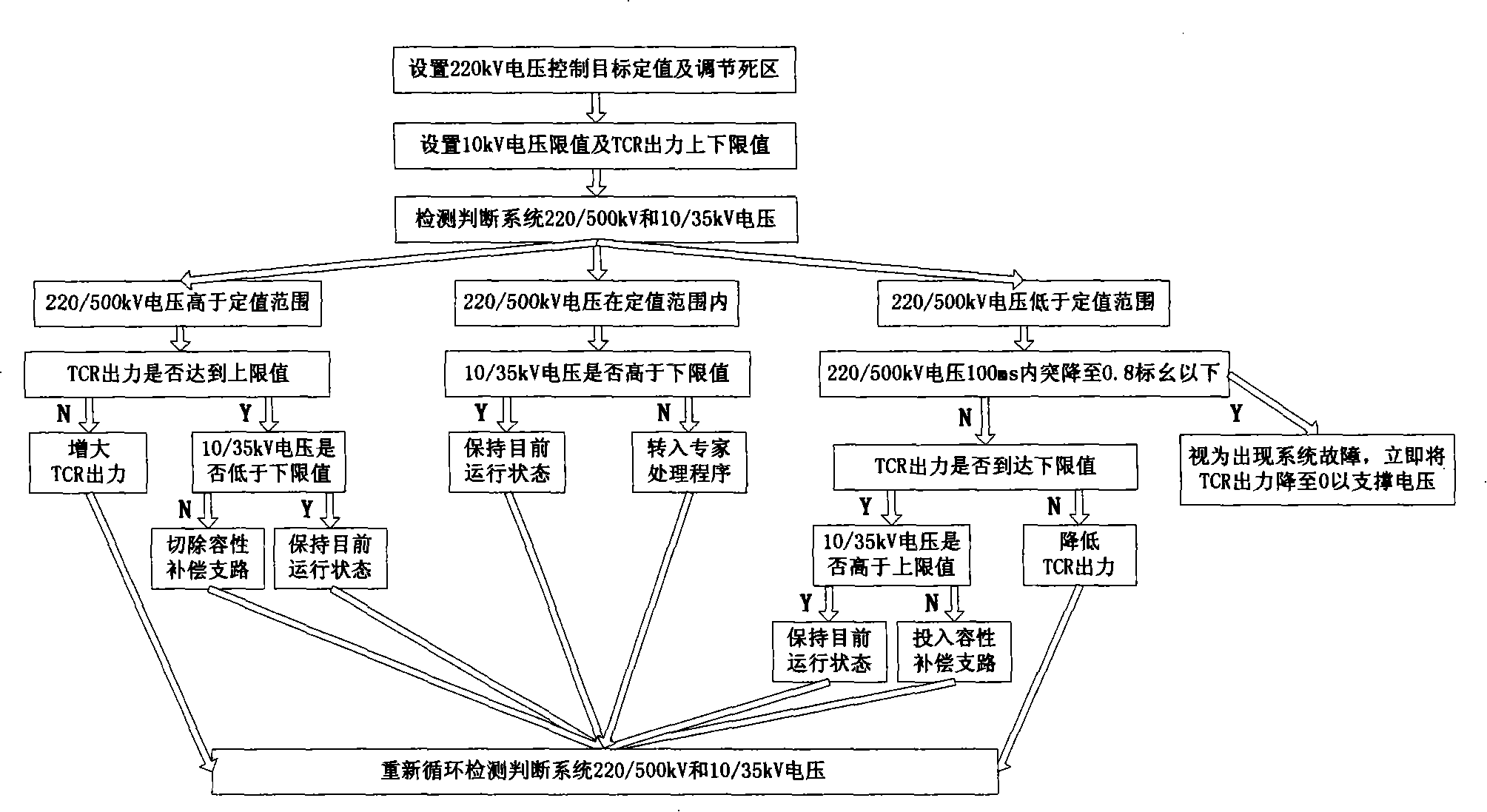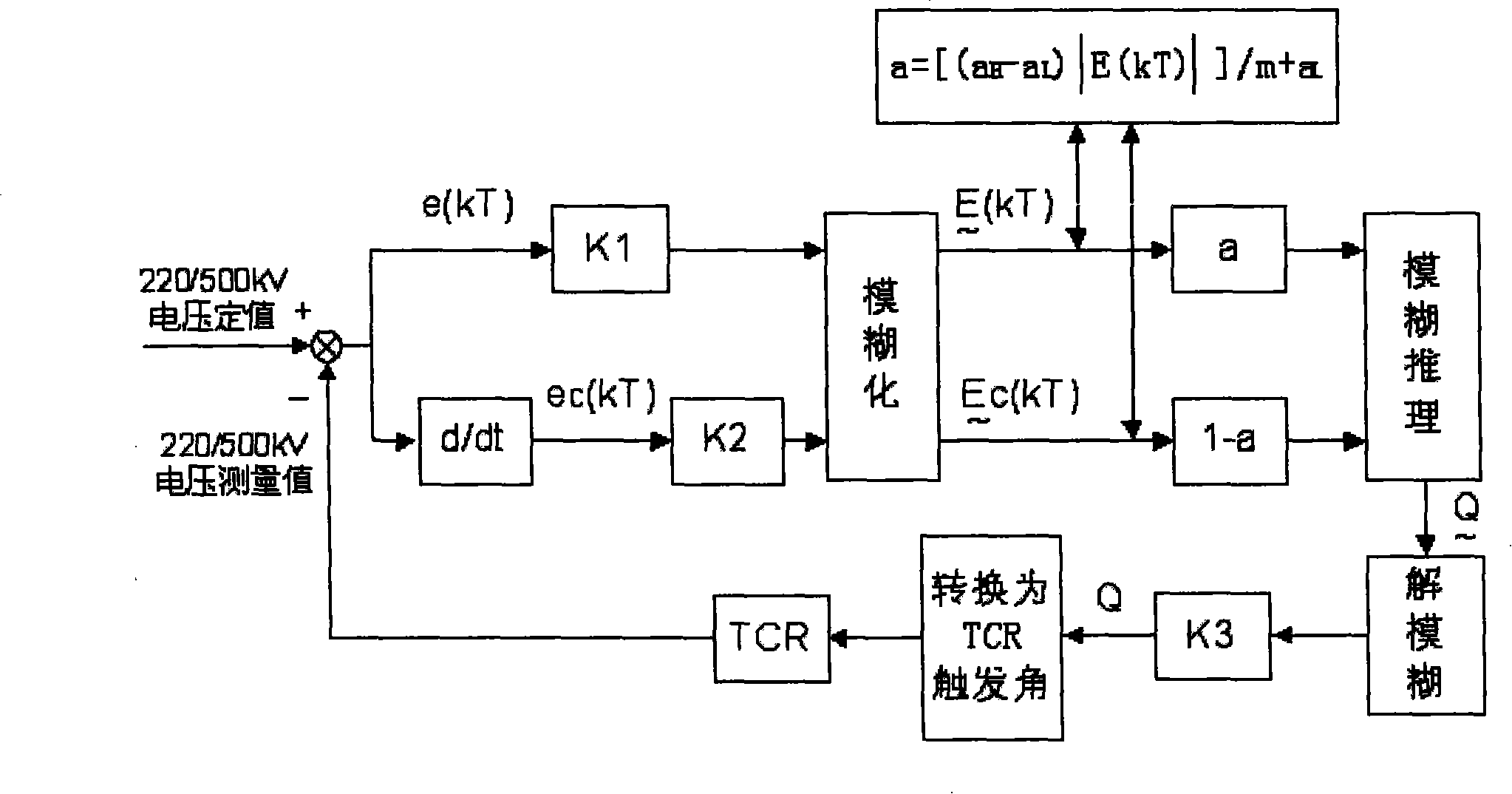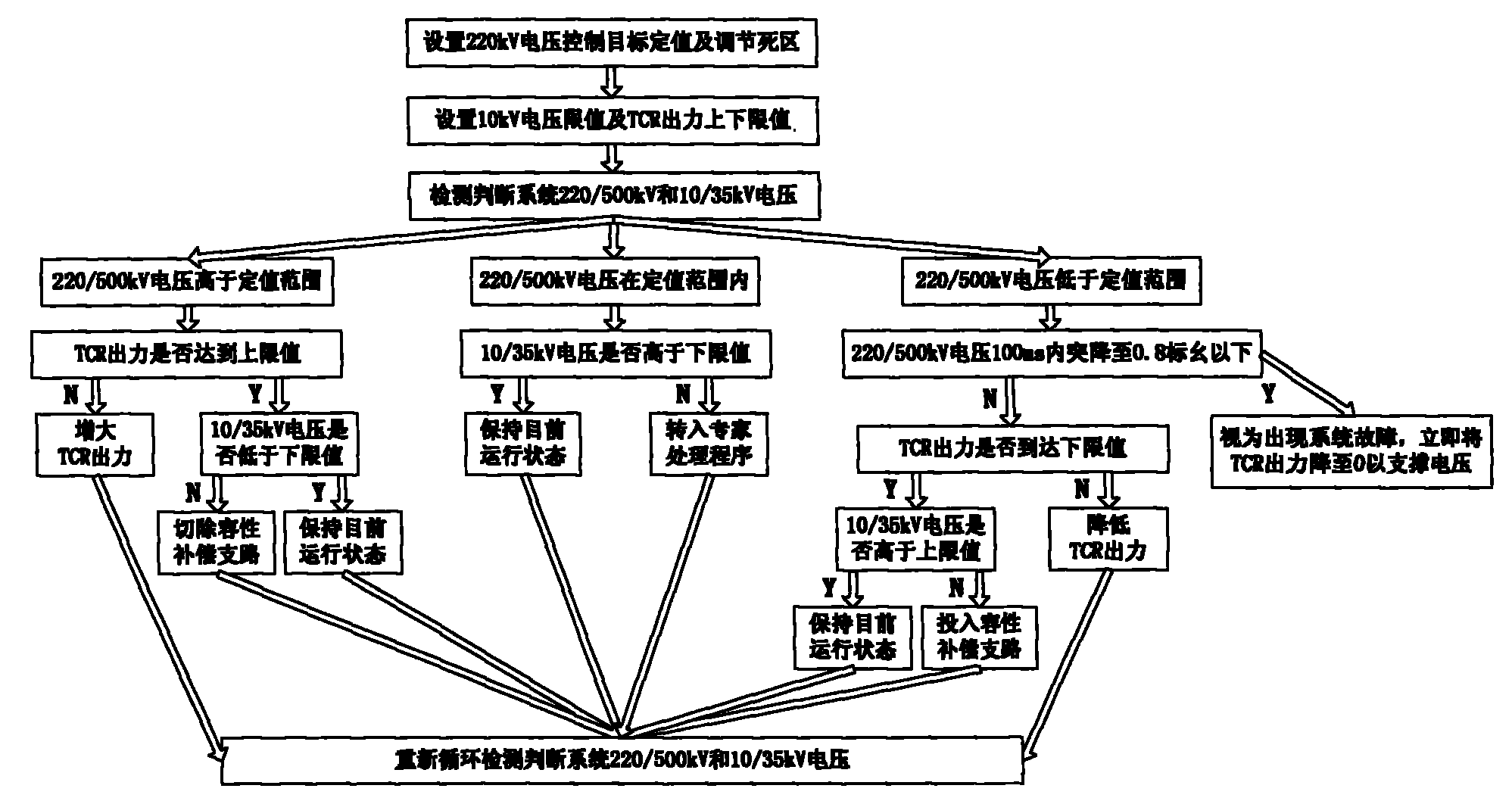TCR type SVC voltage control method for transformer substation
A voltage control method and technology of voltage control, applied in AC network voltage adjustment, flexible AC transmission system, reactive power compensation, etc., can solve the problem of SVC voltage without separate compensation bus, avoid frequent switching and improve stability , strong practical effect
- Summary
- Abstract
- Description
- Claims
- Application Information
AI Technical Summary
Problems solved by technology
Method used
Image
Examples
Embodiment 1
[0014] See figure 1 , According to the basic flow of TCR type SVC used in substation voltage control, first set the 220 / 500kV voltage control target fixed value and adjust the dead zone. Among them, the voltage control target setting is mainly issued by the dispatching department based on actual operating experience and daily system voltage requirements. The adjustment dead zone is determined based on operating experience and system accounting. Usually, the 220 / 500kV voltage change of a capacitive compensation branch system is the largest 1.2 times the value, the interval obtained by the 220 / 500kV voltage control target fixed value plus or minus the dead zone is regarded as the control target fixed value range. SVC uses this to detect whether the current high voltage side voltage is within the target range. The second step is to set the upper and lower limits of the 10 / 35kV voltage and the upper and lower limits of the TCR output. The 10 / 35kV voltage upper and lower limits are ...
Embodiment 2
[0021] In this embodiment, the adjustment dead zone is 1.15 times of the maximum voltage change of 220 / 500kV of a capacitive compensation branch. The interval obtained by adding or subtracting the dead zone of the 220 / 500kV voltage control target is regarded as the control target set value range. . The upper limit of 10 / 35kV voltage is taken as the fixed value of capacitive compensation branch overvoltage protection minus 1.25 times the maximum value that the 10 / 35kV voltage of a capacitive compensation branch may rise. The limit is taken as the minimum value of 10 / 35kV voltage acceptable for normal operation of the substation plus the maximum value of the 10 / 35kV voltage drop of a capacitive compensation branch. If the 220 / 500kV voltage is lower than the control target fixed value range, if it drops below 0.8 standard unit within 3 cycles, it is considered as a system failure, and the TCR output drops to zero immediately to release all capacitive reactive power to quickly supp...
Embodiment 3
[0024] In this embodiment, when the 220 / 500kV and 10 / 35kV voltages are measured and judged, the 220 / 500kV voltage drops below 0.8 standard unit within 3 cycles, which is regarded as a system failure, and the TCR output immediately drops to zero, releasing all capacitive components. Work to support the voltage. The adjustment dead zone is 1.3 times of the maximum voltage change of 220 / 500kV of a capacitive compensation branch. The interval obtained by adding or subtracting the adjustment dead zone to the 220 / 500kV voltage control target is regarded as the control target setting range. The upper limit of 10 / 35kV voltage is taken as the fixed value of capacitive compensation branch overvoltage protection minus 1.15 times the maximum value that 10 / 35kV voltage may rise when a capacitive compensation branch is put into use; the lower limit of 10 / 35kV voltage is taken as normal substation The minimum value of 10 / 35kV voltage acceptable for operation plus the maximum value of the 10 / 3...
PUM
 Login to View More
Login to View More Abstract
Description
Claims
Application Information
 Login to View More
Login to View More - R&D Engineer
- R&D Manager
- IP Professional
- Industry Leading Data Capabilities
- Powerful AI technology
- Patent DNA Extraction
Browse by: Latest US Patents, China's latest patents, Technical Efficacy Thesaurus, Application Domain, Technology Topic, Popular Technical Reports.
© 2024 PatSnap. All rights reserved.Legal|Privacy policy|Modern Slavery Act Transparency Statement|Sitemap|About US| Contact US: help@patsnap.com










